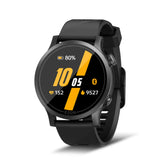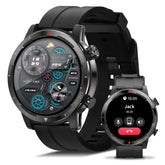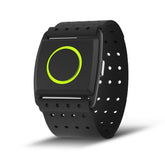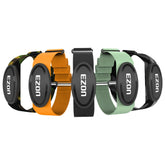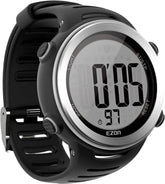Race-Day Nutrition Secrets: Fuel Your Body for Peak Performance
On race day, your body becomes a precision machine—and what you eat and drink is the fuel that powers it. Poor nutrition can lead to bonking, cramps, or slow recovery, while strategic fueling boosts stamina, enhances focus, and maximizes performance. This guide breaks down race-day nutrition strategies for every stage—before, during, and after—plus recipes for energy gels, hydration strategies, and recovery meals to help you cross the finish line strong.
1. Pre-Race Nutrition: Prime Your Engine
A. 3–4 Days Before the Race: Carb Loading
- Goal: Maximize glycogen stores in muscles and liver (each gram of carb holds 3g water, so expect slight water weight gain).
-
How to Do It:
- 6–10g of carbs/kg body weight daily (e.g., 70kg athlete = 420–700g carbs).
- Foods: Oats, sweet potatoes, quinoa, white rice, and pasta (low-fiber to avoid gut issues).
- Protein: 1.2g/kg body weight (chicken, fish, tofu) to preserve muscle without competing for digestion.
B. Race Eve: Light, Familiar Meal
- Avoid New Foods: Stick to tried-and-tested meals to prevent stomach upsets.
- Example Dinner: Grilled chicken (200g), white rice (1.5 cups), steamed veggies, and a small portion of olive oil.
- Hydration: Drink 500ml electrolyte water before bed (add a pinch of salt to replace sodium lost in training).
C. Race Morning: Timing is Everything
-
2–3 Hours Pre-Race:
- 1–2g of carbs/kg body weight (e.g., 70kg = 70–140g carbs).
- Perfect Meal: Oatmeal with banana and honey, or toast with peanut butter and jelly.
-
30–60 Minutes Pre-Race:
- Sip 200ml sports drink (10–15g carbs) to top up glycogen stores.
- Avoid Caffeine Overload: Limit to 1–2 cups of coffee—excess can cause jitters and dehydration.
2. Race-Day Fueling: Stay Consistent, Avoid Bonking
A. During Short Races (5K–Half Marathon)
- Carbs: 30–60g/hour (1–2 energy gels or 1 banana).
- Hydration: 200–300ml water/sports drink every 30 minutes—adjust for sweat rate (weigh yourself before/after training to estimate loss: 1kg loss = 1L fluid needed).
B. During Long Races (Marathon–Ironman)
- Carbs: 60–90g/hour (use gels, sports drinks, or real food like dates/waffles).
- Electrolytes: 500–1,000mg sodium/hour (add salt tabs or use electrolyte-rich drinks like Skratch Labs).
- Pro Tip: Take gels with 100ml water to aid digestion; practice this in training to avoid gut issues.
C. Homemade Energy Gel Recipe (No Added Sugar)
- Ingredients: 1 cup mashed dates, 1 tbsp chia seeds, 1 tsp cinnamon, 1/4 cup water.
- Method: Blend until smooth, store in reusable gel packets—each serving provides 30g carbs and natural electrolytes.
3. Post-Race Recovery: Repair and Rebuild
A. The Golden Window (First 30–60 Minutes)
- Goal: Replace glycogen, repair muscle, and rehydrate.
-
Nutrition Breakdown:
- Carbs: 1.5g/kg body weight (e.g., 70kg = 105g—try a sports recovery drink + a banana).
- Protein: 0.3–0.4g/kg body weight (20–30g—Greek yogurt, chocolate milk, or a protein shake).
- Hydration: Drink 150% of fluid loss (e.g., 2kg sweat loss = 3L water + electrolytes).
B. Recovery Meal (1–2 Hours Post-Race)
-
Balanced Plate:
- Protein: Grilled salmon, turkey, or lentils (30–40g).
- Carbs: Quinoa, brown rice, or sweet potatoes (1–2 cups).
- Fats: Avocado, nuts, or olive oil (small portion to slow digestion).
- Veggies: Spinach, broccoli, or kale (rich in antioxidants to reduce inflammation).
C. Hydration Strategy
- Electrolyte Replenishment: Add a pinch of Himalayan salt to water or drink coconut water (naturally high in potassium).
- Avoid Alcohol: Delays recovery and dehydrates the body—wait 24 hours to celebrate.
4. Hydration Strategies: Balance Electrolytes, Avoid Cramps
A. Sweat Rate Test
- How to Do It: Weigh yourself nude before a 1-hour run, drink only water during, weigh again after.
- Sweat Rate (L/hour): (Pre-weight – Post-weight + Fluids Drunk) → aim to replace 50–70% during races.
B. Race-Day Hydration Plan
- Every 15–20 Minutes: Sip 100–150ml fluid (adjust based on sweat rate and temperature).
- Signs of Dehydration: Dark urine, dry mouth, decreased urine output—act fast with electrolyte drinks.
5. Common Race-Day Nutrition Mistakes to Avoid
- Overloading on Fiber: High-fiber foods (whole grains, raw veggies) pre-race can cause bloating—opt for low-fiber carbs like white rice.
- Ignoring Sodium: Low sodium leads to hyponatremia (diluted blood sodium)—especially risky in long, hot races.
- Waiting Until Thirst Hits: Thirst means you’re already 2% dehydrated—sip regularly even if not thirsty.
6. Personalize Your Plan with Data
Use a sports watch to track:
- Heart Rate: Higher HR in heat means increased sweat rate—boost electrolyte intake.
- Race Pacing: Adjust fueling timing based on splits (e.g., take a gel at the halfway point of a marathon).
- Post-Race Recovery: Monitor resting heart rate and sleep quality to gauge how nutrition affects recovery (e.g., EZON Sports Watch syncs to apps for detailed analysis).
Fuel Like a Pro, Race Like a Champion
Race-day nutrition is not one-size-fits-all—experiment in training to find what your body tolerates, stay consistent with hydration strategies, and prioritize recovery meals. By loading carbs strategically, timing fueling intervals, and refueling with nutrient-dense meals, you’ll avoid bonking, maintain stamina boost, and recover faster.
Remember, the best race-day nutrition plan is the one you’ve practiced—so test energy gels, hydration mixes, and meals in training, and let your body adapt. With the right fuel in your tank, you’ll hit the finish line strong, ready to celebrate a job well done.
EZON Watch: Professional sports technology brand
https://ezonwatch.com
https://ezonwatch.com
